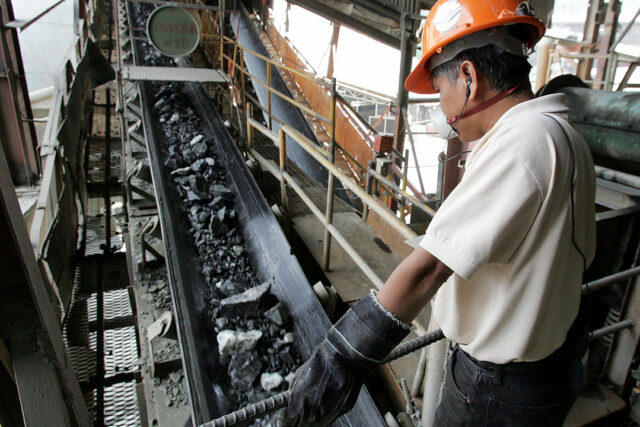THE Bases Conversion and Development Authority (BCDA) said over 95% of sub-lessees holding agreements with former Camp John Hay operator CJH Development Corp.’s (CJHDevCo) have signed new contracts.
“Even before our takeover, we studied their cases. As of today, more than 95% of these homeowners have signed contracts with us,” BCDA President and Chief Executive Officer Joshua M. Bingcang said at the Money Talks with Cathy Yang program on One News Channel.
“They were having fears that their leases might end because their expectation is up to 2046. But their new contracts (take the lease period) beyond 2046, to 2050 or beyond. We’re giving them a fresh start of 25 years plus another 25,” he added.
He said the new BCDA contracts involve over 100 homeowners.
“As for the golf members, many of them have also begun to enjoy playing back again on the golf course. It’s being managed right now by the MVP group,” he added.
CJHDevCo Chairman Robert John L. Sobrepeña on Friday said numerous homeowners were locked out of their homes following the reversion of the Camp John Hay property to the BCDA in January.
According to the CJHDevCo, 417 condotel owners, 159 estate lot owners, and 2,500 golf club members were affected.
Mr. Sobrepeña said the company met with unit owners last week to explain the situation. It was attended by 90 homeowners on-site, while 35 participated online.
“Our message to them was, you are all still the owners of those units. They may have forcibly and illegally taken over possession, but you are still the owners,” he said.
According to the company, six petitions have been filed for quieting of title, with recovery of possession filed on behalf of three Forest Lodge, two Manor, and one country estate lot owners.
“These cases have yet to be raffled off, so we still don’t know to which court or branch will hear these cases. There were also unit owners who filed Affidavits of Third Party Claim with Regional Trial Court branch 6, the court that issued the notice to vacate, but we just don’t know the exact number as of this time,” it added.
In a letter dated Jan. 27, 60 private unit owners and investors of The Forest Lodge, The Manor, Forest Estates, Country Homes, Gold Estates, and Forest Cabin in Camp John Hay wrote to President Ferdinand R. Marcos, Jr. asking for help in recovering their investments.
Specifically, the unit owners asked to be allowed to remain in their units and for BCDA to engage in dialogue with them to find common ground that will benefit all the parties.
P1.4-BILLION PAYMENT
The BCDA president reiterated that the government’s original contract with CJHDevCo ran only for 25 years.
“That is up for renewal. So any renewal must be agreed upon. It should have ended in 2021 or 2022. The arbitration ruling happened sometime in 2015, and so it has dragged on until the Supreme Court decided last year with clear finality that they uphold the arbitral ruling,” he said.
He said that under the arbitral ruling, CJHDevCo must return the property and all the improvements to it, while the government will have to pay rentals totaling P1.4 billion, which it is yet to pay.
The BCDA was able to take over the Camp John Hay property after the Office of the Baguio City Sheriff served the notice to vacate to CJHDevCo following the Supreme Court order.
“We are willing to pay. We have put the money in an escrow account. It’s just that we are waiting for the court, the sheriff, to finish its job in executing this order from the Supreme Court,” he said.
“I think we will be concluding earlier, before the month ends. I think for the homeowners, there are only less than 20 left. For the hotel unit owners, we are also studying the arrangement with them,” he added.
According to Mr. Sobrepeña, the government must honor the rights of the homeowners.
“We just want their rights respected. These are people who invested in a public-private partnership (PPP) project in the ’90s,” he told reporters on Friday.
“Just honor the rights of the third parties. Whether you pay us the P1.4 billion, it’s not that material to me. Whether I get it or not, that’s not my issue anymore; my issue is the third parties,” he added.
CAMP JOHN HAY MASTER PLAN
Meanwhile, Mr. Bingcang said the BCDA received five proposals to update the master plan of the John Hay Special Economic Zone on Friday.
“It’s a good number, and some of them are from international companies. So we will be updating the master plan for Camp John Hay because the original master plan is circa 1990,” he said.
“At that time, there were no sustainable development goals or environmental, social, and governance (goals). So we’re including this kind of development in the new master plan of John Hay to make sure the environment is protected at all times,” he added.
He said that most of the investors that expressed interest in investing in Camp John Hay are engaged in tourism-related development.
“We have big developers who have already visited our site. It just shows that they are ready to partner with the government. And some of these are the big partners that we have in Bonifacio Global City and in Clark,” he said.
“We have local investors, we have Koreans, and we even have Japanese who are studying the mass transport system in Camp John Hay,” he added.
Earlier this year, BCDA said that it expects P10 billion worth of investment to come to Camp John Hay. — Justine Irish D. Tabile












